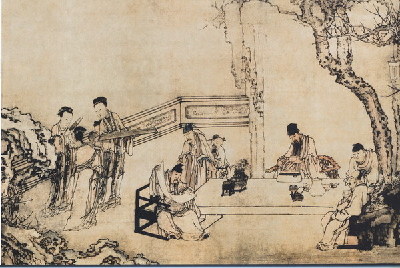The Chinese people have a unique perspective when it comes to their government and tendency to revolt that is often misunderstood by outsiders. To truly understand their views, it is important to consider their history and cultural values.
Social Justice and Poverty
As the great philosopher Confucius said, “not患寡而患不均”, which translates to “people can endure poverty, but they cannot endure injustice”. This emphasis on fairness and social justice has strongly influenced Chinese thinking for centuries. During Mao Zedong’s rule, tens of millions starved but did not rebel because a basic level of justice still existed, even in those difficult times. However, if fairness is lost, the people will be more inclined to revolt against the government. Maintaining justice and equitable treatment of citizens is seen as the highest priority of government in China.

Nationalism on the Rise
In recent years, Chinese nationalism has been increasing. The Chinese people have expressed strong support for President Xi Jinping in opposing the US trade war and standing up for Chinese interests on the global stage. They have rallied behind the idea of a “New Long March” to resist American pressures. As a sign of patriotism, many Chinese are choosing not to purchase US brands, even when they are manufactured in China. This display of unity against foreign threats shows that nationalism plays a large role in how the government is viewed. As long as it protects China’s sovereignty and economic progress, the average citizen is inclined to support the leadership.
A Government that Delivers
A key reason why rebellion is less common in modern China is that the government effectively meets citizens’ basic needs and desire for improvement. For the Chinese, having a “competent government that gives the people everything they need to be successful” matters more than political freedoms. As someone with 300 Chinese employees can attest, most are extremely satisfied with the stable economic growth and rising living standards over recent decades. They see tangible results from the current system. Of course, like in any country, some cynically see corruption at local levels. But generally, as long as everyday life keeps getting better, stability and order are preferred over disruptive regime change.
Healthy Skepticism, Not Hatred
While the Chinese people are far from blindly obedient, it is also inaccurate to say they “hate the government”. As a British expat explained from his observations, they maintain a “healthy skepticism” of all authorities. Daily annoyances like traffic fines do not equate to loathing the entire system. Most do not spend much time philosophizing over political models either. Their priority is on pragmatic concerns within their local communities like jobs, education, health and safety. So long as the overall direction remains positive, moderate political reform is acceptable to gain even greater prosperity. But a revolution is seen as too destabilizing when life has significantly improved.
Rebellion as a Last Resort
Looking back on Chinese history provides context for when revolt was considered legitimate by the people. Times of disorder like the final years of the Qing Dynasty saw widespread unrest, showing rebellion can be justified during a period of national decline and poor governance. However, it was only employed as a last resort option. Under competent rule that fosters development and appeases popular demands, preservation of stability through incremental reform is usually preferred over dangerous upheaval. Having endured centuries of turmoil, the stability and continuity offered by the current system are highly valued. Of course, this could change if problems start overwhelming benefits for citizens.
Pride in Unique Chinese Approaches
From speaking to long term foreign residents of China, it is evident that the Chinese reject the notion that Western democracy is the only valid model. While open to selectively learning from foreign ideas, they take immense pride in China’s history and culture. With distinctive values and priorities shaped by its own path, a system that blended eastern traditions with modernization made sense for the country’s unique circumstances. As one expert observed, no foreign China watcher could claim their way would necessarily work better. An important point is that bothadmiration and criticism of policies usually come from a place of care and interest in China’s continued betterment, not hostility towards its system or people. Overall understanding and nuanced discussion are key.
Appreciating Different Perspectives
In conclusion, accurately perceiving the Chinese outlook requires acknowledging the diversity of viewpoints as well as cultural-historical influences. Broad generalizations do disservice to a billion individuals. Likewise, the experiences of foreigners, no matter how long in the country, cannot replace an insider’s lived reality. Exchange of opinions from all sides within a spirit of respectful discussion, not condemnation, allows deeper appreciation of stances that may seem contradictory or irrational from one lens but make sense with fuller context and empathic consideration. When it comes to such a vast society, certainty should be avoided while open-mindedness and multiple perspective-taking are embraced.

 Exploring Lesser-Known Gems in Thailand Beyond Bangkok
Exploring Lesser-Known Gems in Thailand Beyond Bangkok